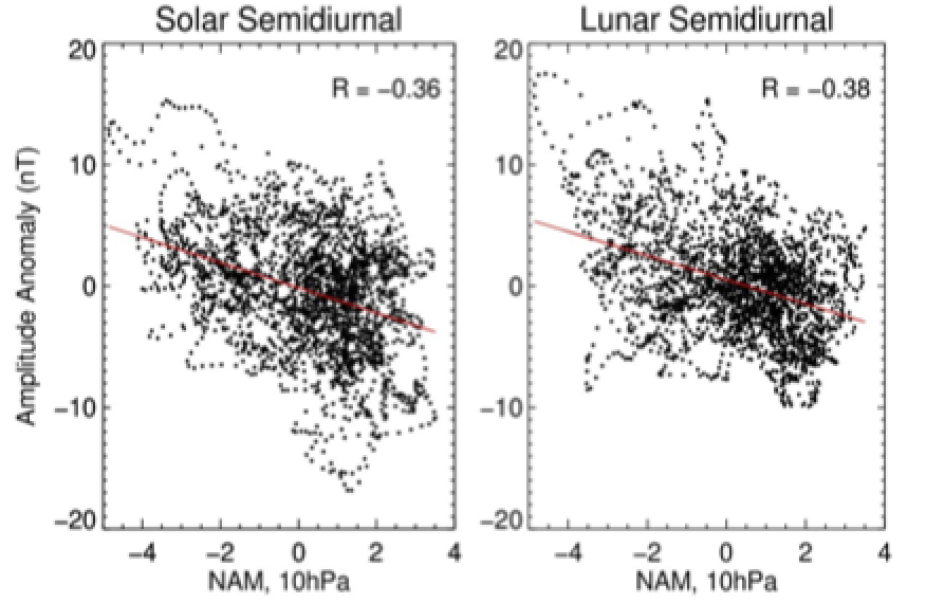
Scatter plot between the anomalies in semidiurnal solar (S2) and semidiurnal lunar (L2) geomagnetic tides versus the Northern Annular Mode (NAM) at 10 hPa. Results are restricted to the period of 15 December to 1 March for all the available data between 1980 and 2020.
Earth, Planets, Space: The impact of strong and weak stratospheric polar vortices on geomagnetic semidiurnal solar and lunar tides is investigated during Northern Hemisphere (NH) winters using ground-based magnetic field observations at the Huancayo (-12.05° N, 284.67° E; magnetic latitude: -0.6° N) equatorial observatory. We analyze the periods between December 15 and March 1 for 34 NH winters between 1980 and 2020 and find that the response of semidiurnal solar and lunar tides as seen in geomagnetic field depends on the strength of the stratospheric polar vortex. During weak polar vortex events, an enhancement of geomagnetic semidiurnal solar and lunar tidal amplitudes is found, which is consistent with the known results during sudden stratospheric warmings. When the stratospheric polar vortex is strong, geomagnetic semidiurnal solar and lunar tidal amplitudes decline, but the intensity of decline is weaker in comparison to the enhancement during weak polar vortex events. Our results also reveal that the response of the geomagnetic semidiurnal solar tidal variations to strong and weak polar vortex conditions is delayed by approximately 10 days while the response of geomagnetic semidiurnal lunar tidal variations do not show a time delay. These results provide observational evidence that along with weak polar vortices in the Northern Hemisphere, the strong stratospheric polar vortices also have pronounced effects on the equatorial ionosphere.